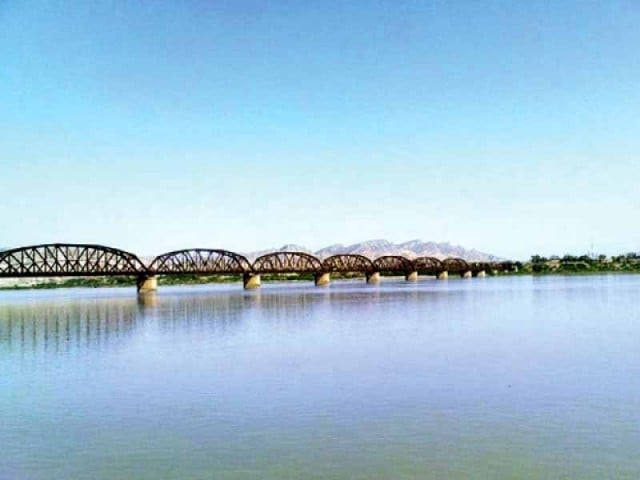CCI meeting: Sindh agrees to allocate water for twin cities
The province has previously been reluctant to provide from its share of water

The province has previously been reluctant to provide from its share of water. PHOTO: FILE
Sindh has approved the allocation of 74 cusecs of water for the federal capital and neighbouring Rawalpindi city from its share under the 1991 Water Apportionment Accord.
In March 2015, the Council of Common Interests (CCI) had approved “Allocation of water for Islamabad/Rawalpindi”, subject to consent of Sindh.
For years, Sindh has declined to allocate water share for the capital on the excuse that the “province was [itself] facing acute water shortage”.
Rest of the three provinces, Punjab, Balochistan and Khyber-Pakhtunkhwa (K-P), have already agreed to the proposal.
According to a decision recently communicated to the capital’s civic agency by the Ministry of Inter-Provincial Coordination, the CCI has approved the allocation of 200 cusecs for the twin cities following receiving Sindh’s approval.
The document says, both Sindh and the Punjab will allocate 74 cusecs each, K-P 28 cusecs and Balochistan 24 cusecs to the twin cities.
Indus River system
This development will pave the way for a multi-billion-rupee project of drawing water from the Indus River system for Islamabad and Rawalpindi.
Conceived in the year 2004, the project was almost abandoned due to Sindh’s reluctance to share water with the twin cities.

According to the CDA documents, under phase-I of the project some 200 million gallons of water will be drawn for both cities every day from the Indus River system.
According to the last feasibility study of the project carried out in 2009, the cost of the project was worked out at Rs44.8 billion, which has swelled further due to delay in execution of the project.
In December 2014, the CDA forwarded a proposal to the Economic Affairs Division for exploring ways to arrange funding for the project from the World Bank.
The CDA Member Engineering, Shahid Sohail informed The Express Tribune that in December 2015, the World Bank had expressed its willingness to assist all the departments/ministries to explore financing and preparation of the project.
“The World Bank team had informed that for proceeding further, the project will have to be reviewed by taking into account all the important aspects that are technical, social, environmental, financial and legal, in the first instance,” he said.
Sohail said that the bank had also indicated that under the “project preparatory facility” arrangements they could extend financing for the project for up to $5 million for “aforementioned studies if the Government of Pakistan officially requested”.
Islamabad water needs
The city managers estimate that by 2020 the city’s water needs will surge to 246.79 million gallons per day (mgd).
A study in this regard was conducted by a consultancy firm M.M. Pakistan.
The study says distribution losses in the next five years will also increase from the current 27.55mgd to 32.19mgd, thus putting the actual demand at 246.79mgd.
This figure includes 155.15mgd of domestic demand and 59.45mgd of non-domestic demand.
At present, the actual demand for Islamabad’s 2.2 million residents is 211.22mgd, while supply is far less.
The situation aggravates especially in peak summer season when the CDA opts for water rationing.
In the rural areas, almost 60 schemes are being operated by the ICT’s Local Government and Rural Development (LG&RD) through committees established at the union council-level to meet a demand of 86mgd. Supply in urban areas, comprising sectoral areas and model villages, is the responsibility of the CDA.
Demand in urban areas goes as high as 125mgd during peak summer season. However, CDA supplies up to 75mgd from Simly and Khanpur dams, four small schemes and over 70 tube wells.
The study conducted by M.M. Pakistan further suggests that at present, a large quantity, almost 27.6mgd, is going waste due to rusting underground infrastructure.
Published in The Express Tribune, March 16th, 2016.



















COMMENTS
Comments are moderated and generally will be posted if they are on-topic and not abusive.
For more information, please see our Comments FAQ